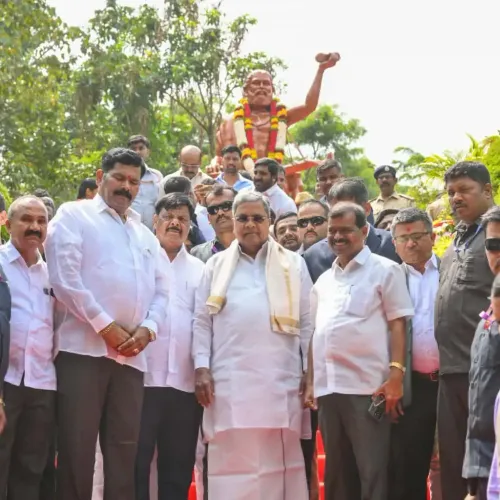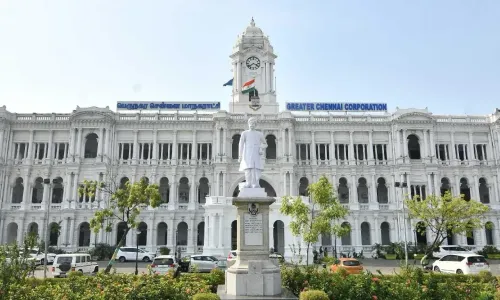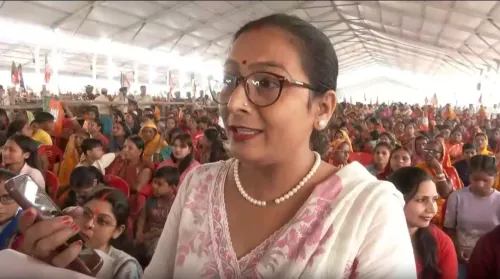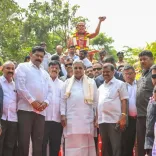How is Taj City Transforming a Landfill into a Miyawaki Forest?
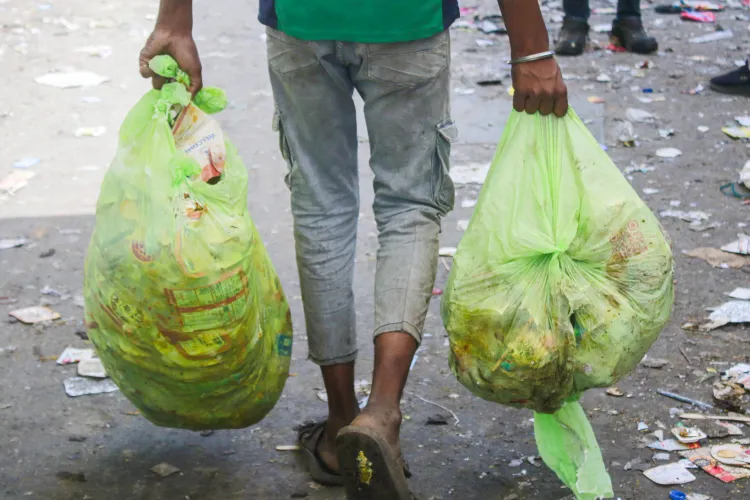
Synopsis
Key Takeaways
- Agra is pioneering an Integrated Waste Management City.
- 47 acres of land reclaimed using sustainable techniques.
- 100% source-level waste segregation is implemented.
- Educational initiatives are being developed at the waste processing center.
- The project aligns with national sustainability goals.
Agra, July 10 (NationPress) The city of Agra has transformed a sanitary landfill in Kuberpur into a pioneering Integrated Waste Management City, establishing a national benchmark for environmental conservation and urban management, according to a statement from the Ministry of Housing and Urban Affairs.
The Agra Municipal Corporation has taken significant measures to tackle waste disposal and has converted the site into a waste management facility as part of the Swachh Bharat Mission-Urban (SBM-U) 2.0, the Ministry confirmed.
The civic body successfully reclaimed around 47 acres of land at a projected cost of Rs 320 crore and has utilized the Miyawaki afforestation method to cultivate 10 acres with greenery.
This endeavor by the Agra utility marks a vital advancement in sustainable waste management, land restoration, and urban beautification, the statement highlighted.
Initiated in 2019, the project was guided by experts aiming to eliminate legacy waste through bioremediation and biomining technologies.
To manage the daily waste influx, a 300 TPD (tonnes per day) waste-to-compost facility was established in 2019, which was later upgraded to 500 TPD.
In 2023, the civic agency resolved to completely eliminate the dumpsite and develop it into an Integrated Waste Management City, in alignment with the vision of Prime Minister Narendra Modi and the guidance of Chief Minister Yogi Adityanath, as stated.
Four Material Recovery Facilities (MRFs) with a total capacity of 405 TPD were set up throughout the city to enhance waste management processes. To boost efficiency, 100% source-level waste segregation has been mandated, along with door-to-door collection of separated waste, according to the statement.
The specialized waste processing facilities consist of a 100 TPD cattle waste to compost plant, a 5 TPD vegetable waste to compost plant, an 8 TPD incineration chamber, and a 20 TPD construction and demolition waste processing plant.
By December 2024, approximately 1.9 million metric tons of waste will have been removed from the dumpsite using bioremediation and biomining, reclaiming around 47 acres of land at an estimated cost of Rs 320 crore, according to the Ministry.
Five acres have been developed into a modern sanitary landfill for safe inert waste disposal, while the remaining area has been transformed into an eco-friendly zone. Efforts are underway to create a 10-acre urban forest.
In January 2025, a 65 TPD MRF-cum-Plastic Waste Processing Plant was inaugurated, where plastic waste is recycled into affordable water pipes for farmers.
The center has also evolved into an educational hub, where students and researchers from various institutions learn about developing sustainable solutions, stated the Ministry.


